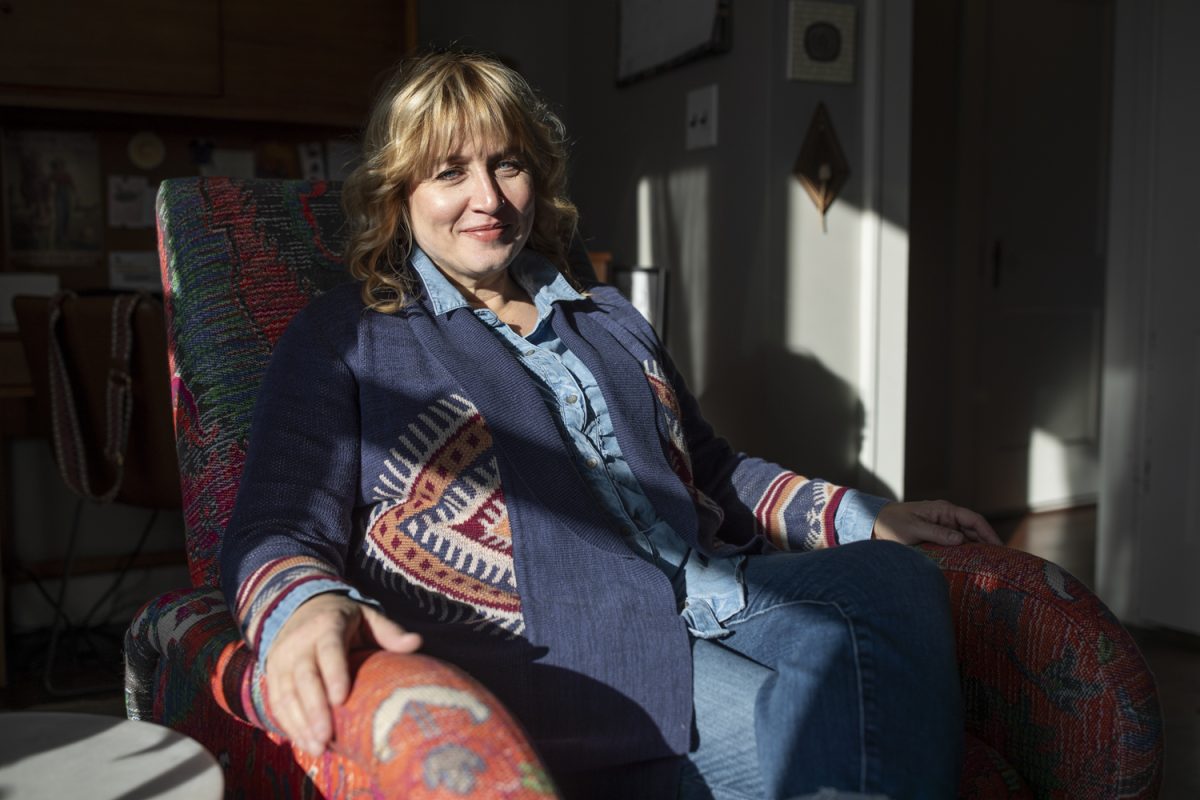Iowa winters have always been known for beautiful snow-covered fields and icy rivers as much as their bitter temperatures, shorter days, and subsequent seasonal depression for some individuals.
Seasonal affective disorder can have a particularly harsh impact on college students who, on top of academic responsibilities, may just be starting to learn how to deal with their own mental health.
For over 18 years, Natalie Benway-Correll, a licensed independent social worker, has worked as a psychotherapist and focused on reconnecting clients with themselves by incorporating holistic interventions.
Registered nurse Beth Pruessner is a professional coach and certified intuitive eating counselor in Iowa City. She teaches individuals how to tune into their bodies, to listen to themselves with food, and movement and activities that bring them joy.
Seasonal affective disorder typically affects people during the fall and winter months, but Benway-Correll said that people who have the disorder experience anxiety in the fall months in anticipation of having to cope with their symptoms.
“You are feeling just horrible about yourself, and you don’t want to be around anybody because it feels like there’s like a light being shined on it,” Benway-Correll said.
Isolation was just one of the many symptoms Benway-Correll named for identifying someone who may struggle with seasonal affective disorder. Other signs included loss of motivation, excessive drug or alcohol use, insomnia or over-sleeping, negative self-talk, eating too much or too little, and neglected personal hygiene.
For many, beginning college also marks the beginning of self-sufficiency. Students have to do their own laundry and get to class on time, but they also need to manage the responsibility of monitoring their own mental health.
When dealing with seasonal affective disorder, Pruessner stressed the importance of support systems by accessing a physician, therapist, or psychologist, if they’re available. She also said it can be helpful for someone to recall what has made them feel supported in the past, and if nothing has worked, to try new ways until they start to feel themselves again.
Still, the well-being of someone should not be the sole responsibility of themselves or another peer.
“Our systems and our communities need to have to take some accountability,” she said.
One aspect of community care is being of service to another person or group of people who may not have access to the resources others have.
Benway-Correll emphasized the importance of distinguishing clinical depression from low moods Though it may seem obvious, Pruessner said in a technology-saturated and productivity-obsessed world, most people are more disconnected from themselves than they realize.
“Our society is so productivity-driven and we don’t put as much value on making time for the quiet and the creative,” she said.
Pruessner emphasized taking regular short breaks from work and challenged people to question what a break should be. She also suggested short breaks that make you sit with yourself like taking a walk outside, putting your phone on airplane mode, or even taking a few minutes to take a breath and focus on your senses.
“I really think it’s much more important for people to learn how to listen to their own bodies and respond accordingly,” Pruessner said.



